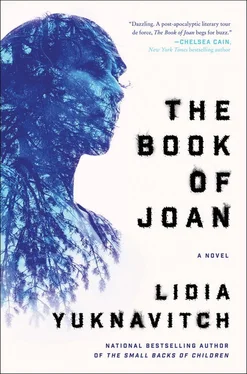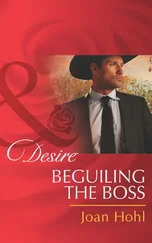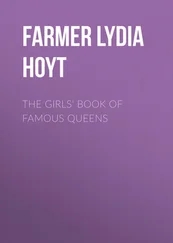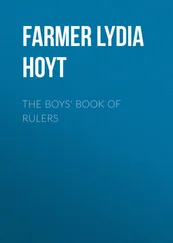“My dead husband was formerly a skin-graft author as well. Only his grafts were glorious: irreverent, debased, disgustingly pleasurable sex grafts for genital areas only. What was left of the penis, the cunt, the ass, under the secret cups of breasts, between the thighs, any erogenous zone. It became considered guttery to wear his work. It’s tempting to record a history entirely about that…” I can feel my own eyes brightening.
“Worth mention: the skull grafts of the most affluent are perhaps the most ostentatious—or hideous, depending on your point of view and your ideas about class division—for they tower and curl like those great powdered wigs from history, falling down the backs of men and women as if their bones and brains leaked out from the mountainous tops of their bald heads and tumbled slowly down their necks, or like sea-foam tumors pouring their way toward their backs. They have their skin stretched and then branded. And stretched again and branded. Think of it!
“I don’t know why I started dreaming of oceans and mountains just now. There are no mountains or oceans here… nothing of their majesty to believe in…”
I hear my voice trail off. “Pause.” My digression gives me a pain between my shoulders, like someone pressing a gun between my breasts. I stare out of the window into everything that is nothing. The gnarled dot of Earth stares back at me like a wrong marble.
I would like, before my death, to step on Earth again. But it is not possible.
Something of a secret contemplation sits in my imagination in this last year of my life. The woman whose story broke the world. They say she is dead. We all witnessed her execution, or its representation. But people will make belief out of anything, especially if it comes with a good story, and despite my cynicism and age, I want to believe in her. Like the way old people on Earth used to turn to a story we made called god. But to speak her name or circulate her image or story beyond the endlessly represented image and story of her “official” death, is a crime. So I hold the thought and words in my head and heart. I clear my throat. “Resume recording.”
“I am a businesswoman. I write for pay. My little ballads have their niche. Near the neck. The jugular.”
Something catches my eye again.
Ah. There is a spider making its way across a web from the fern to my arm. I hold still. The spider arrives. It tickles. I watch it make its way from my wrist bone toward the crook of my arm. I wonder how many spiders we have left. Whether they, too, will someday be gone, like animals and plants and all the things we so desperately tried to export and overclone in the sky. A laughable Noah’s Ark—all the undesirables cloned and perfected! Though I must admit, the spiders are doing better than the butterflies. They keep cocooning and emerging half formed, caught between larva and winged thing. It’s one of the saddest things to behold, as they lie in their crippled fluttering, half-flighted, reminding us that evolution is filled with deathstory.
This stanza on my body needs to heal before I can continue with the graft. Again, I apply a mild astringent. The sting is brief like a whisper. I blow on my own chest.
In the mirror, everything on my body is red and swollen and illegible. But words are coming. Soon there will be raised skinwords, whiter than white. Replacing all trace of breast and woman.
I’m old enough to have read books. Seen films. Studied art and history. I smile. I remember everything. Yet that story, of a girl-warrior killed on the cusp of her womanhood, and what happened after—it tilted the world on its axis, didn’t it? Tilted the lives of those on Earth, which glides still below us. Tilted the lives of the whitened bodies dying out above, we pathetic angels.
But not all legend becomes history, and not all literature deserves to become legend. “Resume.”
“The work of the famous Jean de Men—remember him?—had long been deemed the gold standard of narrative grafts, and specifically of romance grafts. His creations had the added enticement of fitting perfectly around a person’s torso; receiving one of his grafts, it was said, was like being wrapped in a love story, like receiving a long-awaited embrace.
“All of it—and this is where things began to catch fire—I considered utter pig shit.” A pang stings my throat at the memory of pigs. Or any animals.
“I know. Who am I to challenge him, this prize celebrity of the surviving CIEL elite? And yet, I say, pig shit. The reason being this: all the women in his work demanded to be raped. All the women in his stories used language and actions designed to sanction, validate, and accelerate that act. All the women served but one purpose in the plot—to offer their small red flaps of flesh to be parted by the cock, to allow their hole to be plumbed, unto the little death—and when the men were done with them, the women were discarded. Killed or left for dead, impregnated or driven crazy, hidden or locked up by marriage or prison, relegated to a life of sexual commerce in order to survive. In his world, for his women, happily ever after meant rape, death, insanity, prison, or marriage. He took this broken romance trope and elevated it to the level of an almighty text, and thus, it permeated consciousness. Became a habit of being. Power.
“Therefore in the court of public consumption, writer to writer, I endlessly leveled my charges against the celebrity: egregious gender nostalgia was where I started. From there I evolved my accusations to include insidious forms of subjugation, narrative hate speech, representations manifesting brutal atrocities committed between people, and finally, murderously mythologizing what it meant for us to ascend to CIEL… creating a violently false fiction that we would somehow save humanity. Despite my efforts, I could not topple the prevailing power model, one man, his machines in a sky world, his flock of fucking wealthy sheep with nowhere else to go. Creating our different art forms and setting them against each other was the only war I could wage. Representation against representation.
“My little erotic grafts changed form. Now they were armed. I married Eros with Thanatos and began re-creating the story of our bodies, not as procreative species aiming for survival, but rather, as desiring abysses, creation and destruction in endless and perpetual motion.
“Like space.
“In my literary resistance movement, hundreds of women swore their allegiance to the cause. They left lovers and husbands and children. They shifted loyalty in their reading first, and then hungrily, their lives. There was, after all, nowhere to put their former efforts at becoming beautiful sexual objects, or lovers of men, or mothers. Those of gender fluid persuasions could finally breathe as the rest of us caught up to their lived experiences. More surprisingly, some men of open minds started contacting me to discuss ideas. And in the course of these meetings, a common conviction formed among us. A new philosophy took hold and pulsed: the idea that men and women—or the distinction between men and women—was radically and forever dead. We organized. We agitated. We formed secret societies of flesh truths. We held midnight pantomimed orgies exploring our newly discovered bodies—perhaps we were some new species, some new genus with alternative sexual opportunities! We celebrated ourselves with illegal contraband, ever trying to keep the flames of our humanity, our drives and pleasures and pains, alive. None more than my beloved Trinculo.
“What gave my little literary challenge epic impact? What added epic weight to literary representation, was skin. The medium itself was the human body. Not sacred scrolls. Not military ideologies or debatable intellectual theories. Just the only thing we had left, and thus the gap between representation and living, collapsed. In the beginning was the word, and the word became our bodies.
Читать дальше












